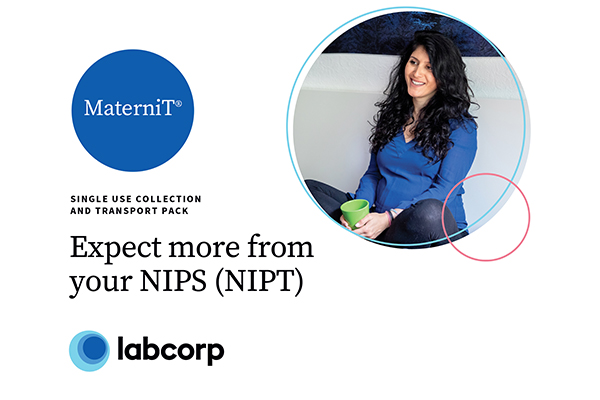- Patients Patients
Reproductive Genetics Testing
Patient Resources
Cost & Billing
- Providers Providers
- Genetic Counseling
- Login Login
- Estimate My Cost

Prenatal MaterniT Genome
A fully validated genome-wide NIPS (NIPT)
The only clinically validated genome-wide NIPS (NIPT), screens all 23 chromosome pairs, reporting aneuploidies, large deletions and duplications greater than 7 Mb in addition to select microdeletions.
Offering a breadth of coverage unlike any other NIPS (NIPT) available to date
Like most NIPSs (NIPTs), MaterniT® GENOME screens for common trisomies (such as 21, 18, and 13) and fetal sex. Like some more comprehensive NIPSs (NIPTs), it also screens for sex chromosome aneuploidies, and analyzes seven clinically significant microdeletion regions.
Unlike any other NIPS (NIPT) to date, MaterniT GENOME also analyzes every chromosome and can provide information about clinically relevant microdeletions and gains or losses of chromosome material ≥ 7 Mb across the genome.
By combining increased sequencing depth with industry-leading expertise, the MaterniT GENOME test offers a breadth of coverage unlike any other noninvasive prenatal screening available to date.
When should you use MaterniT GENOME tests?
MaterniT GENOME is an ideal fit for high-risk pregnancies where a patient may wish to avoid a diagnostic procedure, or where screening for common aneuploidies may not be enough.
What will you see with the MaterniT GENOME test?
This chart shows a summary of the 453 positive results seen by your peers. To view turnaround times, specimen requirements and other clinical details, view MaterniT GENOME in the test menu.
Additional NIPS (NIPT) options
MaterniT 21 PLUS: the pioneering NIPS (NIPT) with more than 1 million tests run1; screens the more well-known trisomies 21, 18, and 13, fetal sex, and (optionally) clinically relevant microdeletions, sex chromosome aneuploidies, and trisomies 16 and 22.
GENOME Case Studies and Commercial Experience
MaterniT specimen collection kit
Starting in July 2023, we are updating our MaterniT cfDNA specimen collection kits with a new look to help increase understanding that MaterniT is a screening test. The kit components and specimen collection requirements will not change.

Other testing options
In addition to NIPS (NIPT), we also offer: serum screening; carrier screening, from comprehensive to single-gene; diagnostic testing that can be used on prenatal and products of conception (POC) samples, as well as pediatric, cord blood or adult samples; and hereditary cancer screening.



